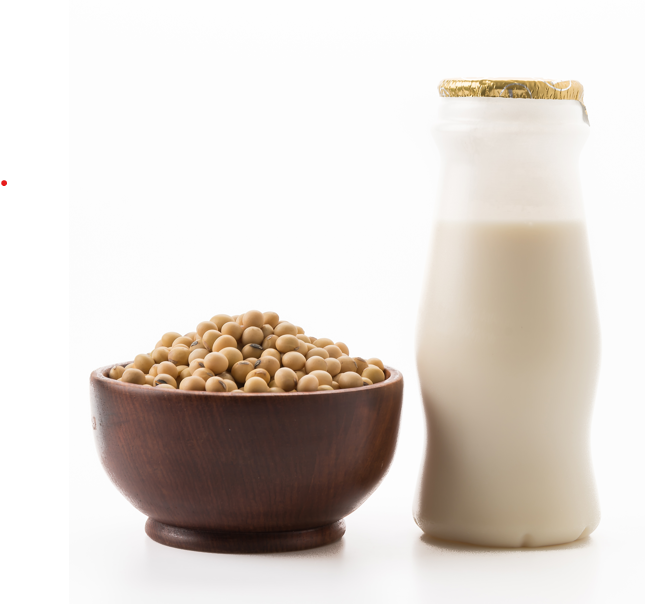If you’ve ever stood in a health shop staring blankly at a wall of supplements, wondering if this bottle will finally fix your bloating, you’re not alone.
Digestive enzymes get thrown around a lot in the IBS world. Some people swear by them. Others are popping capsules without the faintest idea what they’re meant to do. And if you’ve been told that enzymes are your missing piece? Well, that depends.
Let’s cut through the fluff—and the digestive nonsense—and get clear on which digestive enzymes actually help in IBS… and which ones are, quite frankly, crap.
The Enzymes That Actually Help in IBS
1. Lactase: Lactase breaks down lactose, the natural sugar in milk and dairy. If you’re lactose intolerant, your gut may not produce enough lactase, and lactose ends up fermenting in the bowel — causing gas, bloating, and sudden urgency.
This enzyme can be helpful if you want to enjoy dairy without the symptoms that come from lactose intolerance. You take it with the first bite or sip of dairy-containing food, or use lactase drops to pre-treat milk in advance.
It’s one of the best-studied enzymes. Several placebo-controlled trials and meta-analyses have shown it reduces bloating, diarrhoea, and cramping in people with lactose intolerance. However, for people with IBS, lactose may only be part of the story. If symptoms continue despite using lactase, it could be due to gut sensitivity rather than poor digestion — which calls for a different approach.
Pros:
- Well-researched with strong evidence
- Easily available in shops and online
- Gives flexibility with dairy
Cons:
- Only helps with lactose, not dairy fat or protein
- Timing is important for it to work
- Can get expensive if used regularly
2. Alpha-Galactosidase (e.g. Beano, Beanzyme): This enzyme helps break down galacto-oligosaccharides (GOS), a type of fermentable carbohydrate found in beans, lentils, and some vegetables like Brussels sprouts. These are common bloating triggers for many with IBS.
It’s useful if you get gassy or uncomfortable after eating pulses or high-GOS veg. You take it with the first bite of a meal that contains these foods.
Evidence for this enzyme is more mixed. Some studies in healthy people show it can reduce gas and improve symptoms. There’s also a small trial in children with IBS that showed benefit. But adult trials are less convincing — one placebo-controlled study in 2021 found no clear advantage over placebo in reducing post-meal symptoms in IBS.
It’s also worth noting that some alpha-galactosidase products contain added prebiotic fibres like inulin or FOS, which are FODMAPs themselves and may trigger symptoms. Always check the label if you’re sensitive.
Pros:
- Targets a known FODMAP (GOS)
- May help with gas and bloating after pulses
- Convenient capsule or chewable formats
Cons:
- Mixed evidence in IBS, especially adults
- Doesn’t help with other FODMAPs
- Some products may contain FODMAP ingredients
- May not be widely available in local shops
3. FODZYME®: FODZYME is a newer product that breaks down fructans — FODMAPs found in garlic, onions, and wheat. These are some of the most common and tricky triggers in the IBS world. The enzyme comes as a powder you sprinkle onto your food before eating.
It’s ideal if you want to enjoy a wider variety of foods, especially when eating out or with others.
Laboratory studies show that FODZYME can break down up to 90% of fructans within 30 minutes, and reduce gas production while maintaining beneficial gut bacteria. A recent real-world study of 131 people (mostly with IBS) reported improved symptoms in about 70% of participants. But it wasn’t a placebo-controlled trial, so the results need to be interpreted with caution. Larger, controlled trials in IBS are still needed.
This enzyme is not cheap, and it’s mainly available online. For some, the powder format may feel awkward or less convenient than a capsule.
Pros:
- Helps break down fructans (garlic, onion)
- Backed by Monash University
- Useful for eating out or when sharing food
Cons:
- High cost per use
- Limited availability — mostly online
- No large-scale placebo-controlled trials in IBS yet
- Powder format may not suit everyone
What About the Other Enzyme Blends?
There are plenty of generic digestive enzyme blends on the shelves — filled with names like protease, lipase, amylase, and claims like ‘supports healthy digestion’. These are not necessarily harmful, but they’re not designed for IBS.
They’re intended for people with pancreatic enzyme deficiency, not those dealing with FODMAP sensitivity or gut-brain dysfunction. If your symptoms are due to fermentable carbs or gut hypersensitivity, these blends won’t do much — and could drain your wallet more than your symptoms.
Where Enzymes Fit in the Bigger IBS Picture
Digestive enzymes can be helpful — but they’re not magic pills. They’re not a cure. And they certainly aren’t a substitute for understanding what’s actually going on in your gut.
They work best when you know what your gut struggles with — like lactose, GOS, or fructans — and you want a bit of flexibility, especially when eating out or travelling.
But if you’re relying on enzymes daily to control bloating, wind, or urgency, they probably won’t fix the issue at its core.
What does make a long-term difference?
- Calming the gut-brain axis
- Identifying and understanding your real triggers
- Creating a realistic, personalised strategy — not another one-size-fits-all plan
Final Thoughts
If you’ve been trying enzyme after enzyme with little relief, you’re not doing anything wrong. You’re just missing a few key pieces of the puzzle.
Lactase, alpha-galactosidase, and FODZYME can support your plan — but only if used at the right time, for the right reason, and with the right expectations.
Don’t rely on a supplement aisle to solve a complex gut issue. Start with clarity, connection to your body, and expert guidance.
Because your gut isn’t broken.It’s just looking for the right kind of support.





